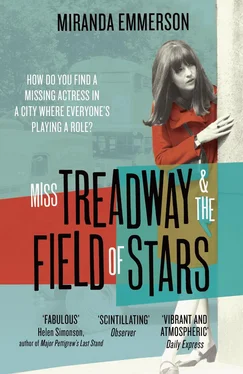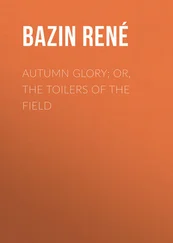1 ...7 8 9 11 12 13 ...17 Anna had sunk into a kind of sulk. Her broad shoulders fell forward and she stared at the corner of the table while her fingers worked apart a piece of bread. ‘It’s too strange, Ottmar. We talked every day. But then I think about the things we talked about and there’s her clothes and her looks and we joked about men and people in the company but she never told me anything about … before. Where she came from. Everything was always in the present. She never mentioned family. She never mentioned her past.’
Ottmar made a slight face as if to say that Iolanthe was not the only one. Anna chose to ignore this. ‘She had all these bank accounts in different names. Maria and Yolanda and Nathaniel. Nathaniel, her brother, isn’t even alive any more – but she’s paying money to him all the same.’
Ottmar frowned. ‘You mean Iolanthe?’
‘What?’
‘You said Yolanda.’
‘Well, yes. She was Iolanthe but she paid money into the bank account of a woman called Yolanda Green.’
‘But they’re the same name. Iolanthe is a Greek name, yes? But in Spain, she’d be Yolanda. Iolanthe; Yolanda: same name.’
‘Oh.’ Anna was taken aback by her own ignorance. ‘I didn’t realise. I … Thank you.’ She stared at Ottmar and he couldn’t quite read the emotion in her look. ‘I went to the police station today and it felt real again. And I realised that all those stories, all those articles and interviews, they’d turned this thing – Lanny’s disappearance – into something else. They took it over. Made it unreal. I’d come to feel that Iolanthe belonged to some other world. A world of newspapers and radio. Almost as if she wasn’t real. Wasn’t our problem. But she is real. And she is our problem. She was this person that I knew and liked … and something horrible has happened to her.’
***
Anna dreamed that night that she was standing on the Strand in the darkness. A line of red double-decker buses queued on the other side of the Aldwych, their windows dark. She knew she had to get home but she couldn’t remember where it was she lived. Forest Hill? No, that had been years ago. Where did she live now? She tried to call up the name of the roads she’d lived on. Aberystwyth Close. Horns Lane. Bearwood Road. Havelock Walk. None of these seemed right. A figure approached out of the darkness. It was a man. A policeman. But his uniform was strange: a black suit with a mandarin collar and bright buttons down the front. He wore a peaked cap with a badge she did not recognise and carried a thin black stick. When he opened his mouth to speak she expected to hear a language other than English pass his lips.
‘I think the buses have stopped for the night now, miss.’
Anna peered at his face, which was hard to see, and shifted rather from glance to glance. He had red hair like that young man she had met … she couldn’t quite think where.
‘There are night buses. I always used to catch the night bus,’ she assured him in as definite a voice as she could manage.
‘Where to, miss?’
‘I can’t remember. I’m so sorry. I can’t remember where I live.’
The policeman smiled at her. ‘Well, how do you imagine you’ll get home if you don’t know where it is you’re going?’
The next moment they were standing together just north of St Martin’s near where she used to wait for her bus to Forest Hill. Anna felt an odd sensation of pinching in the palm of her right hand and looking down, she realised with horror that she was holding hands with the policeman. She pulled away quickly, though he seemed unwilling to let her go.
‘I’m sorry,’ she told him. ‘I’m so sorry. I have to get my bus.’
She walked north up Charing Cross Road without once looking back, but she found then that her stop had vanished and with it the statue of Edith Cavell. Anna stood in the spot where Edith’s monolith should have been and then gazed warily up at the sky in case perhaps the statue had been rocketed into space and would descend again at any moment, crushing her where she stood. Fifty yards away the policeman raised his hand and waved to her as if to attract her attention to some new emergency. He seemed to be calling to her and Anna strained to make out the words.
‘Your bus is coming, miss!’
Anna turned and there it was, a great red metal tower charging onto the pavement towards her as she stood watching, paralysed, already doomed.
Anna woke, the sheet around her clammy with sweat. She untangled herself and got out of bed. There was a thunder of feet coming down the stairs outside the flat and Anna could hear Leonard’s voice speaking quickly and urgently. The footsteps passed by and she stood for a minute in the dark living room listening for what came next. The street outside was quiet; no traffic on Shaftesbury Avenue at this time. Footsteps climbed the stairs again and paused for a moment outside the door of the flat.
‘Leonard?’ Anna spoke his name almost without meaning to.
‘Anna?’
She fetched a dressing gown from the back of her door and pulled it tight around her. Leonard stood on the stairs outside the door dressed only in pyjama bottoms, his hair sweeping madly to one side, his eyes bloodshot.
‘What happened?’ Anna asked.
‘Benji’s sister’s sick. We’ve been up for the last hour trying to call people and now he’s gone to find a cab. Can I come in? No. Sorry. Scratch that. You need to get back to bed.’
‘No. It’s fine. I was having a rotten night anyway. What time is it?’
‘It’s five or half five. Do you want to come up? I’ve got proper coffee. Might even manage a bun.’
Anna had no great desire to sink back into her clammy bed. ‘Not like there’s a show tomorrow.’
‘Well, quite.’ And Leonard led the way.
For the first few months after Anna took the waitressing job at the Alabora she hadn’t minded the toing and froing from Forest Hill to Covent Garden because it seemed romantic – London seemed romantic, with its twisting parks and grime-covered frontages; its dark-stained river flanked by rictus-mouthed fish who held with their tails a trail of softly glowing lights: the epitome of grand metropolitan strangeness. It was a shifting city of light and dark; of strange shadows cast across the Thames at twilight, of grimy dark underpasses and roads which shone like sheets of metal on a summer’s day. The players in the theatre moved in packs, now lightness and colour, now darkness and gloom. Women in white and red and blue, flowing like a moving tricolour along the riverbanks and shopping streets, handbags swinging, heels clicking and clacking like discordant castanets. Then the men of the city in their work attire, the endless bowler hats, mackintoshes and dark striped suits – the extraordinary conformity of the ruling class, as if bankers and lawyers and politicians were actually some great branch of the Army or police.
After the first few months the endless travelling started to take its toll. She never got to bed before four and the bathroom above her was busy with noise by half past six – jolting her from sleep, dragging her from her bed, so that her head banged with cold and tiredness at two in the morning when the night bus was running late and her feet were aching in her broken shoes. But that was before she met Leonard.
She had just started to work lunchtimes as well as evenings at the Alabora and so had been introduced to a whole new selection of regular faces. Leonard Fleet owned the flat at the top of the building and worked in a theatre on Charing Cross Road. At least three times a week he would pop home for something or other – a book, a script, a pound for a night out – and he would use this journey as an excuse to eat lunch at the Alabora. The Alabora served a strange mixture of Turkish and English food and most lunchtimes you could choose from egg and chips, spinach and pea omelette, kiymali ispanak or kofte with simit and yoghurt. Leonard was an egg and chips kind of man – most of the customers were – but he liked the smell and sight of the Turkish food and he would drink the coffee and eat the little baklava that Ottmar always popped onto his saucer when he spotted that Leonard was in.
Читать дальше












